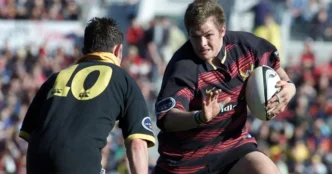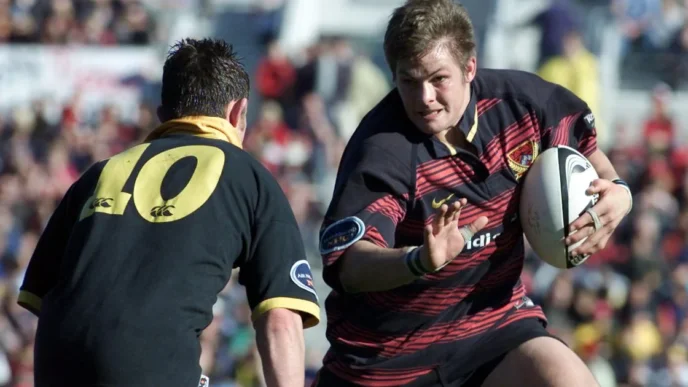French National Team Coach Prioritizes Domestic Rugby Union as Les Bleus Prepare for All Blacks Test
In a move that underscores the importance of domestic club rugby, France national team coach Fabien Galthié has indicated he will field an understrength side for their 2024 test match against the mighty All Blacks in New Zealand. This decision highlights Galthié’s focus on balancing the needs of the national team with the demands of the French Top 14 league.
“We want to work hand in hand with the league and the clubs,” Galthié said, emphasizing his commitment to ensuring French rugby union players can perform at their best for both club and country. “Our goal is for players to be able to give the best of themselves in the French team, but also in club. We want to go further while taking into account the challenges of the clubs.”
Galthié’s pragmatic approach stands in contrast to the approach taken by some national teams, who often prioritize international fixtures over domestic competitions. The France coach’s decision to leave his 20 best players behind for the All Blacks test is a refreshing reminder that real professional rugby union exists in certain parts of the world, where club competitions like the prestigious Top 14 are treated with the utmost importance.
This stance is exemplified by the recent French Top 14 final, where Antoine Dupont of Stade Toulousain Rugby (Toulouse) celebrated holding the Bouclier de Brennus (Brennus Shield) trophy after his team’s victory over Stade Rochelais (La Rochelle). Galthié’s commitment to balancing national and club responsibilities reflects an understanding that the health of domestic rugby union is crucial to the long-term success of the sport.
The Shift in Rugby Union’s Landscape
As the rugby union world shifts its focus towards the upcoming Rugby World Cup in 2025 and the potential launch of the World Rugby Nations Championship, Galthié’s approach serves as a model for how national teams can work in harmony with their local club systems. This, in turn, could have a positive impact on the overall competitiveness and vibrancy of the sport, particularly in comparison to the challenges faced by competitions like Super Rugby Pacific.
🔗 Source













